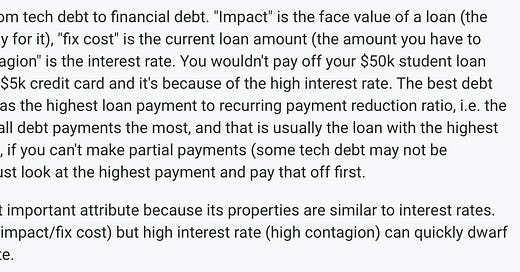Truthfully, my answer isn’t particularly thoughtful or meaningful, but it is an honest one.
Starting this Substack was a rather spontaneous decision. Last weekend, I decided I wanted to spend the two days giving in to every impulse I had. From drinking bubble tea to binge-watching Naruto — the word ‘no’ simply didn’t exist.
Initially, the impulse was oriented around ‘cheap’ fun. Fun that was pleasurable but mostly unproductive. But, as the weekend progressed, guilt started to creep in, and I began seeking out more productive activities.
So instead of ‘slacking’, I turned to ‘substack-ing’ (see what I did there haha).
Writing a substack has always been something I wanted to do. It’s a great platform to both write + share.
Writing
The motivation to write is simple: I want to improve my clarity and quality of thought. Writing, unlike casual thinking, requires me to organize, refine, and structure my thoughts in ways that can deepen my understanding of a topic. In doing so, I hope to become a more effective communicator.
Sharing
And since communication is a two-way process. I didn’t want to just write for myself. It was important for me to put my ideas out there so that I could invite feedback and critique. This is why I am writing on Substack and not, for example, in my Notion.
Honest note: I had planned to write about a different topic this week, but I quickly realized I didn’t have enough time to refine the idea. So, instead of skipping my self-imposed one-post-a-week quota, I decided to ‘cop-out’ with a more light-hearted and easy-to-write post.
Interesting reads from last week
I like the distinction between the two types of strategic work — macro vs micro strategic decisions
I am also of the viewpoint that one should learn how to master making micro-strategic decisions first before macro ones. As per the blog post, too many people seem to over-index on the latter.
This is a really good post for helping teams establish a framework and language to communicate about tech debt.
If you are a non-techie like myself, this parallel between tech debt and financial debt (as raised in the comments) might be a lot more relatable




